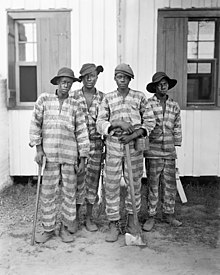Robert Nozick
Jump to navigation
Jump to search

Robert Nozick (16 November 1938 – 23 January 2002) was an American libertarian philosopher and Pellegrino University Professor at Harvard University.
Quotes[edit]



- When I was 15 years old, or 16, I carried around on the streets of Brooklyn a paperback copy of Plato's Republic, front cover facing outward. I had read only some of it and understood less, but I was excited by it and knew it was something wonderful.
- The Examined Life (1989)
- Whatever the practical origins of aesthetic discernment may have been, it has been used to create great works of art. When the very loftiest human creations are seen to derive from humble origins and functions, what needs revision is not our esteem for these creations but our notion of nobility.
- The Nature of Rationality (1993), Ch. V : Instrumental Rationality and Its Limits; Rationality's Imagination, p. 181
- Our principles fix what our life stands for, our aims create the light our life is bathed in, and our rationality, both individual and coordinate, defines and symbolizes the distance we have come from mere animality. It is by these means that our lives come to more than what they instrumentally yield. And by meaning more, our lives yield more.
- The Nature of Rationality (1993), Ch. V : Instrumental Rationality and Its Limits; Rationality's Imagination, p. 181
Anarchy, State, and Utopia (1974)[edit]





- Individuals have rights and there are things no person or group may do to them (without violating their rights). So strong and far-reaching are these rights that they raise the question of what, if anything, the state and its officials may do. How much room do individual rights leave for the state?
- Preface, p. ix
- Our main conclusions about the state are that a minimal state, limited, to the narrow functions of protection against force, theft, fraud, enforcement of contracts, and so on, is justified, but any more extensive state will violate persons' rights not to be forced to do certain things, and is unjustified; and that the minimal state is inspiring as well as right.
- Preface, p. ix
- Some anarchists have claimed not merely that we would be better off without a state, but that any state necessarily violates people's moral rights and hence is intrinsically immoral. Our starting point then, though nonpolitical, is by intention far from nonmoral. Moral philosophy sets the background for, and boundaries of, political philosophy. What persons may and may not do to one another limits what they may do through the apparatus of a state, or do to establish such an apparatus.
- Ch. 1 : Why State of Nature Theory?; Political Philosophy, p. 6
- Is there really someone who, searching for a group of wise and sensitive persons to regulate him for his own good, would choose that group of people that constitute the membership of both houses of Congress?
- Ch. 2 : The State of Nature; Protective Associations, p. 14
- There is no social entity with a good that undergoes some sacrifice for its own good. There are only individual people, different individual people, with their own individual lives. Using one of these people for the benefit of others, uses him and benefits the others. Nothing more.
- Ch. 3 : Moral Constraints and the State; Why Side Constraints?, p. 32
- 1. A person who acquires a holding in accordance with the principle of justice in acquisition is entitled to that holding.
2. A person who acquires a holding in accordance with the principle of justice in transfer, from someone else entitled to the holding, is entitled to the holding.
3. No one is entitled to a holding except by (repeated) applications of 1 and 2.- Ch. 7 : Distributive Justice, Section I, The Entitlement Theory, p. 151
- A distribution is just if it arises from another just distribution by legitimate means.
- Ch. 7 : Distributive Justice, Section I, The Entitlement Theory, p. 151
- Whatever arises from a just situation by just steps is itself just.
- Ch. 7 : Distributive Justice, Section I, The Entitlement Theory, p. 151
- Justice in holdings is historical; it depends upon what actually has happened. We shall return to this point later.
- Ch. 7 : Distributive Justice, Section I, The Entitlement Theory, p. 152
- Some people steal from others, or defraud them, or enslave them, seizing their product and preventing them from living as they choose, or forcibly exclude others from competing in exchanges. None of these are permissible modes of transition from one situation to another.
- Ch. 7 : Distributive Justice, Section I, The Entitlement Theory, p. 152
- Whoever makes something having bought or contracted for all other held resources used in the process (transferring some of his holdings for these cooperating factors), is entitled to it. The situation is not one of something’s getting made, and there being an open question of who is to get it. Things come into the world already attached to people having entitlements over them.
- Ch. 7 : Distributive Justice, Section I, Patterning, p. 160
- From each as they choose, to each as they are chosen.
- Ch. 7 : Distributive Justice, Section I, Patterning, p. 160
- Taxation of earnings from labor is on a par with forced labor. Seizing the results of someone's labor is equivalent to seizing hours from him and directing him to carry on various activities.
- Ch. 7 : Distributive Justice, Section I, Redistribution and Property Rights, p. 169
- Lacking much historical information and assuming (1) that victims of injustice generally do worse than they otherwise would and (2) that those from the least well-off group in the society have the highest probabilities of being the (descendants of) victims of the most serious injustice who are owed compensation by those who benefited from the injustices, ... then a rough rule of thumb for rectifying injustices might seem to be the following: organize society so as to maximize the position of whatever group ends up least well-off in the society.
- pp. 231-232
- These issues are very complex and are best left to a full treatment of the principle of rectification. In the absence of such a treatment applied to a particular society, one cannot use the analysis and theory presented here to condemn any particular scheme of transfer payments, unless it is clear that no considerations of rectification of injustice could apply to justify it. Although to introduce socialism as the punishment for our sins would be to go too far, past injustices might seem to be so great as to make necessary in the short run a more extensive state in order to rectify them.
- p. 232
- No state more extensive than the minimal state can be justified.
- Ch. 10 : A Framework for Utopia; The Framework, p. 297
- Wittgenstein, Elizabeth Taylor, Bertrand Russell, Thomas Merton, Yogi Berra, Allen Ginsberg, Harry Wolfson, Thoreau, Casey Stengel, The Lubavitcher Rebbe, Picasso, Moses, Einstein, Hugh Hefner, Socrates, Henry Ford, Lenny Bruce, Baba Ram Dass, Gandhi, Sir Edmund Hillary, Raymond Lubitz, Buddha, Frank Sinatra, Columbus, Freud, Norman Mailer, Ayn Rand, Baron Rothschild, Ted Williams, Thomas Edison, H.L. Mencken, Thomas Jefferson, Ralph Ellison, Bobby Fischer, Emma Goldman, Peter Kropotkin, you, and your parents. Is there really one kind of life which is best for each of these people?
- Ch. 10 : A Framework for Utopia; The Framework, p. 310
- There will not be one kind of community existing and one kind of life led in utopia. Utopia will consist of utopias, of many different and divergent communities in which people lead different kinds of lives under different institutions. Some kinds of communities will be more attractive to most than others; communities will wax and wane. People will leave some for others or spend their whole lives in one. Utopia is a framework for utopias, a place where people are at liberty to join together voluntarily to pursue and attempt to realize their own vision of the good life in the ideal community but where no one can impose his own utopian vision upon others.
- Ch. 10 : A Framework for Utopia; The Framework, p. 311
- Utopia is a meta-utopia: the environment in which Utopian experiments may be tried out; the environment in which people are free to do their own thing; the environment which must, to a great extent, be realized first if more particular Utopian visions are to be realized stably.
- Ch. 10 : A Framework for Utopia; The Framework, p. 312
- Some communities will be abandoned, others will struggle along, others will split, others will flourish, gain members, and be duplicated elsewhere. Each community must win and hold the voluntary adherence of its members. No pattern is imposed on everyone, and the result will be one pattern if and only if everyone voluntarily chooses to live in accordance with that pattern of community.
- Ch. 10 : A Framework for Utopia; Design Devices and Filter Devices, p. 316
- You can't satisfy everybody; especially if there are those who will be dissatisfied unless not everybody is satisfied.
- Ch. 10 : A Framework for Utopia; The Framework as Utopian Common Ground, p. 320
- Though the framework is libertarian and laissez-faire, individual communities within it need not be, and perhaps no community within it will choose to be so. Thus, the characteristics of the framework need not pervade the individual communities. In this laissez-faire system it could turn out that though they are permitted, there are no actually functioning "capitalist" institutions; or that some communities have them and others don't or some communities have some of them, or what you will.
- Ch. 10 : A Framework for Utopia; The Framework as Utopian Common Ground, p. 320
- It goes without saying that any persons may attempt to unite kindred spirits, but, whatever their hopes and longings, none have the right to impose their vision of unity upon the rest.
- Ch. 10 : A Framework for Utopia; The Framework as Utopian Common Ground, p. 325
- In a free system any large, popular, revolutionary movement should be able to bring about its ends by such a voluntary process. As more and more people see how it works more and more will wish to participate in or support it. And so it will grow, without being necessary to force everyone or a majority or anyone into the pattern.
- Ch. 10 : A Framework for Utopia; Utopian Means and Ends, p. 327
- One persistent strand in utopian thinking, as we have often mentioned, is the feeling that there is some set of principles obvious enough to be accepted by all men of good will, precise enough to give unambiguous guidance in particular situations, clear enough so that all will realize its dictates, and complete enough to cover all problems which actually arise. Since I do not assume that there are such principles, I do not presume that the political realm will whither away. The messiness of the details of a political apparatus and the details of how it is to be controlled and limited do not fit easily into one's hopes for a sleek, simple utopian scheme.
- Ch. 10 : A Framework for Utopia; Utopian Means and Ends, p. 330
- Is not the minimal state, the framework for utopia, an inspiring vision?
The minimal state treats us as inviolate individuals, who may not be used in certain ways by others as means or tools or instruments or resources; it treats us as persons having individual right with the dignity this constitutes. Treating us with respect by respecting our rights, it allows us, individually or with whom we please, to choose our life and to realize our ends and our conception of ourselves, insofar as we can, aided by the voluntary cooperation of other individuals possessing the same dignity. How dare any state or group of individuals do more. Or less.- Ch. 10 : A Framework for Utopia; Utopia and the Minimal State, p. 333
Quotes about Nozick[edit]

- Sorted alphabetically by author or source
- Robert Nozick, the Arthur Kingsley Porter Professor of Philosophy at Harvard University, always attacks his problems in a disconcertingly original way. … in The Examined Life, he took on nothing less than the meaning of life, a subject that academic philosophers tended to steer clear of — and still do, despite his best efforts.
From Mr. Nozick you always expect fireworks, even if some of them go off in their box. His questions, hints, counterarguments and suggestions come so thick and fast that it is next to impossible to appreciate all of them. Start pondering a sentence and you will find yourself led away prematurely by a parenthetical question; think about the question and you will be dragged into a discursive footnote; from the bowels of the footnote, another parenthetical query will leap out at you. If you escape back to the main argument with your concentration intact (unlikely, after a while), the whole wearing business just starts over again. Yet it is worth the effort — certainly for regular readers of philosophy, and often for others.- Anthony Gottlieb, in a review of The Nature of Rationality, "Why Do You Do the Things You Do?" in The New York Times (22 August 1993)
- No contemporary philosopher possesses a more imaginative mind, broader interests, or greater dialectical abilities than Robert Nozick.
- Review of Anarchy, State, and Utopia (1974), in Harper's magazine (as quoted on back of the softcover edition).
- His learning is enormous and interconnected … His ability to surround a subject, to anticipate objection, to see through weakness and pretense, to exact all the implications of a contention, to ask a huge number of relevant questions about a seemingly settled matter, to enlarge into full significance what has only been sketched by others, is amazing.
- George Kateb, in a review of Anarchy, State, and Utopia (1974), in The American Scholar (as quoted on back of the softcover edition).
- Given the extensive involvement of state violence in the process by which the corporate elite not only achieved its wealth in the past but continues to maintain and augment it in the present, it is clear that the massive inequalities of wealth that characterise present-day ‘capitalist’ society are radically inconsistent with any approach to justice in holdings that is even remotely Nozickian.
- Roderick Long, "Left-libertarianism, market anarchism, class conflict and historical theories of distributive justice," Griffith Law Review, Vol. 21 Issue 2 (2012), p. 416
- Nozick’s Theory, in spite of its apparent dedication to self-ownership, cannot escape the conclusion that women’s entitlement rights to those they produce must take priority of persons’ rights to themselves at birth. ... There is nothing about a woman’s production of an infant that does not easily fulfill the conditions of the principle of acquisition as Nozick specifies them.
- Susan Moller Okin, Justice, Gender, and the Family, (USA: Basic Books, 1989), p. 82
- Hayek and Nozick both think that talk of distributive justice is misleading, because it suggests the presence of a distributing person or mechanism; in a developed economy there is no such thing, and in a free society, the attempt to institute such a thing would destroy all freedom. Hayek, however, supports this view with an account of the computational impossibility of deciding what to produce and distribute in order to achieve justice, while Nozick is more concerned to emphasize that the state has no right to seize the resources of individuals in order to distribute them according to any principle whatever.
- No one, not even a philosopher, is morally obligated to live as if the world were the way he wishes it were. Robert Nozick pays taxes and is entitled to enjoy the government benefits they finance --even benefits he thinks should not exist. Perhaps the libertarian philosopher should not be expected to opt out of rent control voluntarily. But should he be pursuing his landlord through the maze of rent control regulations like a man possessed? And should he be using his ability to make a nuisance of himself under these regulations for simple, if lawful, cash extortion?
They say that policeman make the best burglars. After a few years on the job, they know all the tricks. The same thing seems to be true of philosophers. If you're looking for someone to manipulate a rent control ordinance, find an advocate of the free market.- William Tucker, "Anarchy, State, and Rent Control", The New Republic (Dec. 22, 1986)
See also[edit]
External links[edit]
- Philosopher Nozick dies at 63 From the Harvard Gazette
- A summary of the political philosophy of Robert Nozick by R. N. Johnson
- Nozick on Newcomb's Problem and Prisoners' Dilemma by S. L. Hurley
- Robert Nozick: Against Distributive Justice by R.J. Kilcullen
- "Why Do Intellectuals Oppose Capitalism?" (1986)] by Robert Nozick
- Open Directory Project - Robert Nozick
Categories:
- Academics from the United States
- Philosophers from the United States
- Mathematicians from the United States
- Logicians from the United States
- Libertarians from the United States
- Agnostics from the United States
- American Jews
- Cultural critics
- Social critics
- People from New York City
- 1938 births
- 2002 deaths
- Critics from the United States
- Educators from the United States
- Political authors from the United States
- National Book Award winners
- Harvard University faculty
- Columbia University alumni
- Princeton University alumni
- University of Oxford alumni
